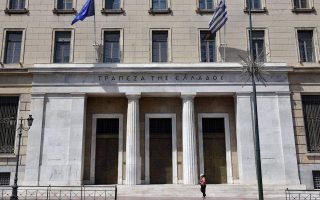ESM praise and warnings

Greece has a comfortable liquidity position in the short term, stable access to markets, low financing needs that reflect its low average debt maturity and significant financial support from the European Union recovery funds, according to the annual report the European Stability Mechanism, which emerged at Thursday’s board meeting.
However, it noted that in the long run “Greece remains vulnerable due to macroeconomic imbalances, especially its very high public debt as well as the persistent investment gap, low productivity and high nonperforming loans.”
To address these weaknesses, “Greece has embarked on an ambitious journey to modernize its economy,” with reform priorities including addressing long-term weaknesses in infrastructure, education and skills as well as public administration, the report adds.
The ESM noted that the war in Ukraine casts a shadow over Greece’s economic prospects, the magnitude and impact of which remains to be seen, adding that the country could be affected “given its dependence on tourism and Russian oil and gas imports.”
Greece achieved several important milestones in the reform agenda in 2021, the ESM reported. It noted the implementation of the new bankruptcy framework, further progress in privatizations – mainly at Elliniko – the adoption of an ambitious strategic plan to strengthen the governance of state enterprises and the improvement of fiscal discipline. However, there have been delays and obstacles in pushing for some reforms, such as the 2021 plan to bring state debts down to zero.
Greece has made further progress in implementing its reform commitments and received the fifth and sixth half-year installments for debt relief, totaling 1.5 billion euros.
The report emphasized that the Greek economy recovered strongly in 2021, recording growth of 8.3% and substantially covering the losses from the pandemic.
It also noted that the government has provided extensive support to households, workers and businesses with one of the largest budget packages in the eurozone and that thanks to growth, debt has fallen to 193.3% of GDP from 206.3%. Banks reduced their NPLs by more than half to 12.8% by end-2021, but high private debt remains and an effective framework is needed.





